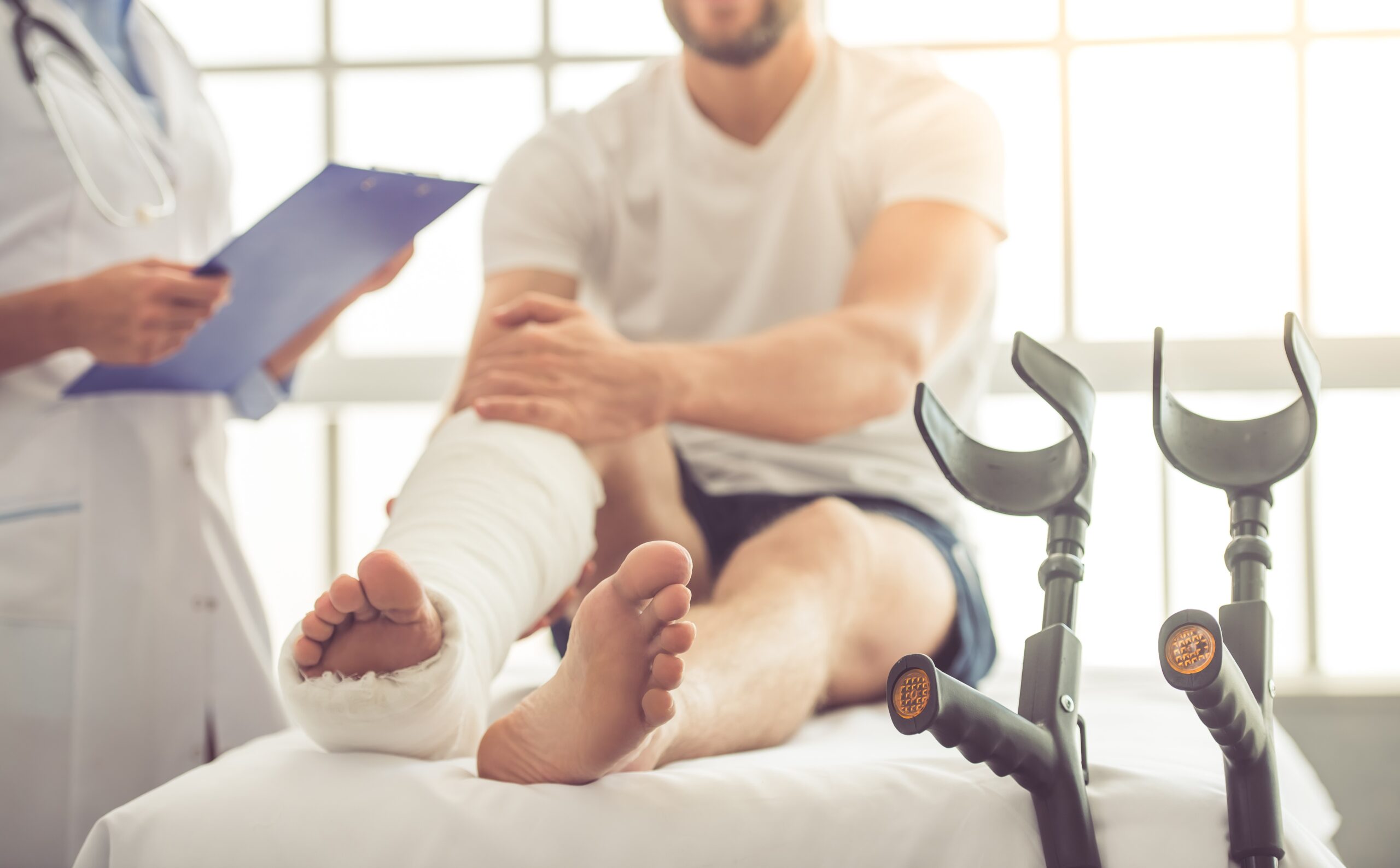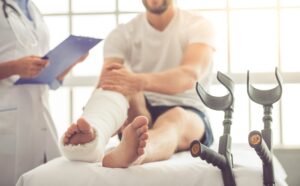How Soon Should I See a Doctor After a Slip and Fall Accident?
Slip and fall accidents are common occurrences, and they can happen to anyone at any time. When they do happen, it’s important to know what to do next, especially when it comes to seeking medical attention. One of the questions that often comes up in the aftermath of a slip and fall accident is how long you have to go to the doctor.
If you’ve been involved in a slip and fall accident, the most important thing you should do is seek medical attention right away. Even if you don’t feel like you’ve been seriously injured, it’s still a good idea to get checked out by a doctor. Some injuries, such as concussions or internal bleeding, may not be immediately apparent, but they can be very serious and even life-threatening if left untreated.
That being said, there is no set timeline for how long you have to go to the doctor after a slip and fall accident. In general, it’s best to seek medical attention as soon as possible, ideally within 24-48 hours of the accident. This will not only ensure that any injuries are properly diagnosed and treated, but it can also help to establish a clear timeline of events in case you decide to pursue legal action later on.
If you wait too long to seek medical attention after a slip and fall accident, it could potentially harm your chances of recovering compensation for any personal injuries you’ve sustained. Insurance companies and courts may view a delay in seeking medical attention as a sign that your injuries aren’t as serious as you claim or that they were caused by something other than the accident in question.
What Tests Will a Doctor Run After a Slip And Fall Accident?
After a slip and fall accident, a doctor will typically conduct a thorough physical examination to assess any injuries you may have sustained. The doctor may ask you questions about the accident and your medical history, including any pre-existing conditions or medications you may be taking.
Depending on the nature of your injuries, the doctor may order additional tests to help diagnose and treat your condition. Here are some of the tests that doctors may run after a slip and fall accident:
X-rays: X-rays can help to detect fractures or other skeletal injuries.
CT scans: CT scans can provide detailed images of the head, neck, and spine, and are useful for detecting fractures, brain bleeding, and other soft tissue injuries.
MRI scans: MRI scans use powerful magnets and radio waves to produce detailed images of the body’s internal structures, and are useful for detecting soft tissue injuries such as torn ligaments or herniated discs.
Blood tests: Blood tests can help to identify infections, inflammation, or other underlying health conditions that may be contributing to your symptoms.
Urine tests: Urine tests can help to detect kidney damage or other urinary tract issues.
Neurological tests: Neurological tests can assess your brain function and determine if you’ve sustained a concussion or other brain injury.
In addition to these tests, your doctor may also prescribe medications or recommend physical therapy to help manage your pain and aid in your recovery. If your injuries are serious or require specialized treatment, your doctor may refer you to a specialist such as an orthopedist or neurologist.
The specific tests and treatments you receive will depend on the nature and severity of your injuries, as well as your overall health and medical history.
How Might Medical Tests Affect a Potential Lawsuit?
Medical tests and results can play a crucial role in determining the outcome of a lawsuit following a slip and fall accident. The results of these tests can both help or hurt your case depending on the nature of the injuries you sustained and the evidence they provide.
If your medical tests and results clearly demonstrate that you sustained injuries as a result of the slip and fall accident, this can greatly strengthen your case. For example, if an X-ray or CT scan shows that you have a broken bone or other physical injury that can be directly linked to the fall, this can provide compelling evidence of the property owner’s negligence and the severity of your injuries.
On the other hand, if your medical tests and results do not support your claims or are inconsistent with your reported symptoms, this can hurt your case. For example, if a doctor’s evaluation and tests show that you do not have any serious injuries or that your injuries are not consistent with the severity of the fall, this can undermine your claims and make it more difficult to recover compensation for your injuries.
Medical tests and results can also be used by the opposing party’s legal team to challenge your claims and credibility. For example, they may argue that you delayed seeking medical attention, failed to follow your doctor’s treatment recommendations, or have a pre-existing condition that may have contributed to your injuries.
To help ensure that your medical tests and results support your case, be honest and accurate when reporting your symptoms and medical history to your doctor. It’s also a good idea to consult an experienced personal injury attorney who can help you navigate the legal process and build a strong case based on your medical evidence and other factors.
What Else Do I Need To Do After Visiting a Doctor?
In addition to seeking medical attention promptly, there are a few other steps you should take after a slip and fall accident to protect your legal rights. These include:
Reporting the accident to the property owner or manager as soon as possible.
Documenting the scene of the accident, including taking photos of any hazardous conditions that may have contributed to the fall.
Gathering contact information from any witnesses who may have seen the accident happen.
Contacting an experienced personal injury attorney who can help you navigate the legal process and protect your rights.
If you’ve been involved in a slip and fall accident, it’s important to seek medical attention as soon as possible. While there is no set timeline for how long you have to go to the doctor, waiting too long could potentially harm your chances of recovering compensation for any injuries you’ve sustained. By taking prompt action and seeking legal help, you can protect your rights and ensure that you receive the medical care and compensation you deserve. Make sure that your rights are protected throughout the legal process and that you receive the compensation you deserve by calling High Stakes Injury Law at (702) 605-6671.







